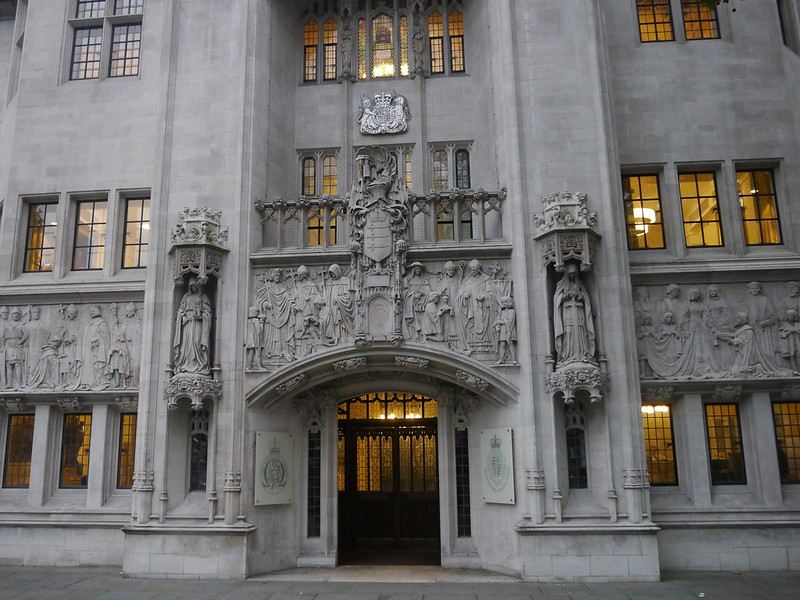

The UK Supreme Court has ruled that the legal term “woman” in the Equality Act 2010 refers to biological sex, not legal gender. The unanimous decision by five judges settles how sex-based protections apply in Britain and ends a years-long legal battle over the meaning of sex in law.
The case was brought by the campaign group For Women Scotland. They challenged the Scottish government over its inclusion of transgender people in laws meant to ensure gender balance on public sector boards. The group argued that only those born female should be counted under such protections.
The change in tone from @BBCNews is refreshingly stark now they know what a woman is…#WeKnowWhatAWomanIs @ForWomenScot pic.twitter.com/JKbuWM4HOw
— Neale Hanvey ALBA
(@JNHanvey) April 16, 2025
The legal dispute began in 2018 when the Scottish Parliament passed a bill promoting equal representation on public boards. It included transgender women as part of the female quota, prompting the legal challenge.
At the center of the case was how the Equality Act defines “sex.” The judges were asked whether the term should follow biological or legal definitions based on gender recognition certificates issued under the 2004 Gender Recognition Act.
The Scottish government argued that a certificate legally changes a person’s sex “for all purposes.” However, the court disagreed.
Delivering the ruling, Lord Hodge said the Equality Act defines sex based on biological terms. He added that the decision should not be seen as a triumph of one side over the other and stressed that transgender people remain protected from discrimination under the law.
A UK government spokesman said the ruling would bring “clarity and confidence for women and service providers such as hospitals, refuges, and sports clubs”.
The court said that applying a certificate-based definition of sex would create confusion and weaken legal protections, especially for women-only services and lesbian-only groups.
“Certified” sex definitions, the judges said, would blur the legal meaning of man and woman and could disrupt the functioning of sex-specific spaces and programs. They cited examples including changing rooms, charities, medical services, and women’s sports.
Campaigners from For Women Scotland reacted with hugs and tears outside the courtroom. Co-founder Susan Smith said the ruling validated their stance.
Reporting live outside the UK Supreme Court as the Judges hear evidence, and will ultimately decide on the definition of a woman. @gbnews hears from Susan Smith from @ForWomenScot who brought the case against Scottish government.#WeKnowWhatAWomanIs pic.twitter.com/xf7fM4iTqB
— Emily Wilding Davison
(@Wommando) November 26, 2024
“Sex is real and women can now feel safe that services and spaces designated for women are for women, and we are enormously grateful to the Supreme Court for this ruling,” she said.
Author J.K. Rowling also praised the ruling, calling it a victory for women across the UK. “It took three extraordinary, tenacious Scottish women with an army behind them to get this case heard by the Supreme Court, and, in winning, they’ve protected the rights of women and girls across the UK,” she wrote on social media.
Scotland’s First Minister, John Swinney, said the government accepted the court’s ruling and would review its implications. He emphasized that future steps would aim to protect everyone’s rights.
The Supreme Court has ruled that a woman is defined as biological sex under the Equality Act of 2010. Big win for logic and common sense. Can Jennifer Melle and Sandie Peggie
get an apology and their jobs back? Many other women lost their jobs because of this madness. pic.twitter.com/3k0MCcnaNY— J. (@_hello_im_j) April 16, 2025
A Scottish government spokesperson said ministers had acted “in good faith” during the case. The spokesperson also confirmed that the Equality and Human Rights Commission is updating its guidance to reflect the ruling.
The UK government welcomed the decision. A spokesperson said the ruling gives “clarity and confidence” to service providers and reinforces the legal standing of single-sex spaces.
Not all welcomed the decision. Trans rights advocates expressed deep concern about the judgment’s impact on legal protections for transgender people.
Vic Valentine, manager of Scottish Trans, said the ruling reversed two decades of legal understanding. “This judgement seems to suggest that there will be times where trans people can be excluded from both men’s and women’s spaces and services,” they said.
“It is hard to understand where we would then be expected to go – or how this decision is compatible with a society that is fair and equal for everybody.”
Scottish Green MSP Maggie Chapman called the decision a “deeply concerning ruling for human rights.” She said it could leave many trans people and their families anxious about their future.
Dr. Nick McKerrell, senior law lecturer at Glasgow Caledonian University, said the ruling means a transgender woman with a legal certificate cannot argue she was discriminated against as a woman if excluded from a single-sex space.
He added that the ruling could lead to changes in how workplaces and public services manage facilities, likely based on biological sex.
However, he noted that access to single-sex spaces may still vary. “It doesn’t mean everything overnight is going to change in terms of stopping trans people from accessing services,” he said. “It will depend on what providers think the new definition will mean for them.”
He also said the judgment doesn’t directly affect transgender participation in sports but may lead to a broader reassessment of current rules.
The legal journey began in 2018 and included multiple rulings in Scottish courts. In 2022, the Scottish government won a case when a judge ruled that sex was “not limited to birth sex.” That same year, Scottish lawmakers passed reforms to simplify the gender recognition process. However, the UK government blocked the changes, and the reforms were later dropped.
The Supreme Court’s decision is currently the final legal word on how the Equality Act defines sex in Britain.
